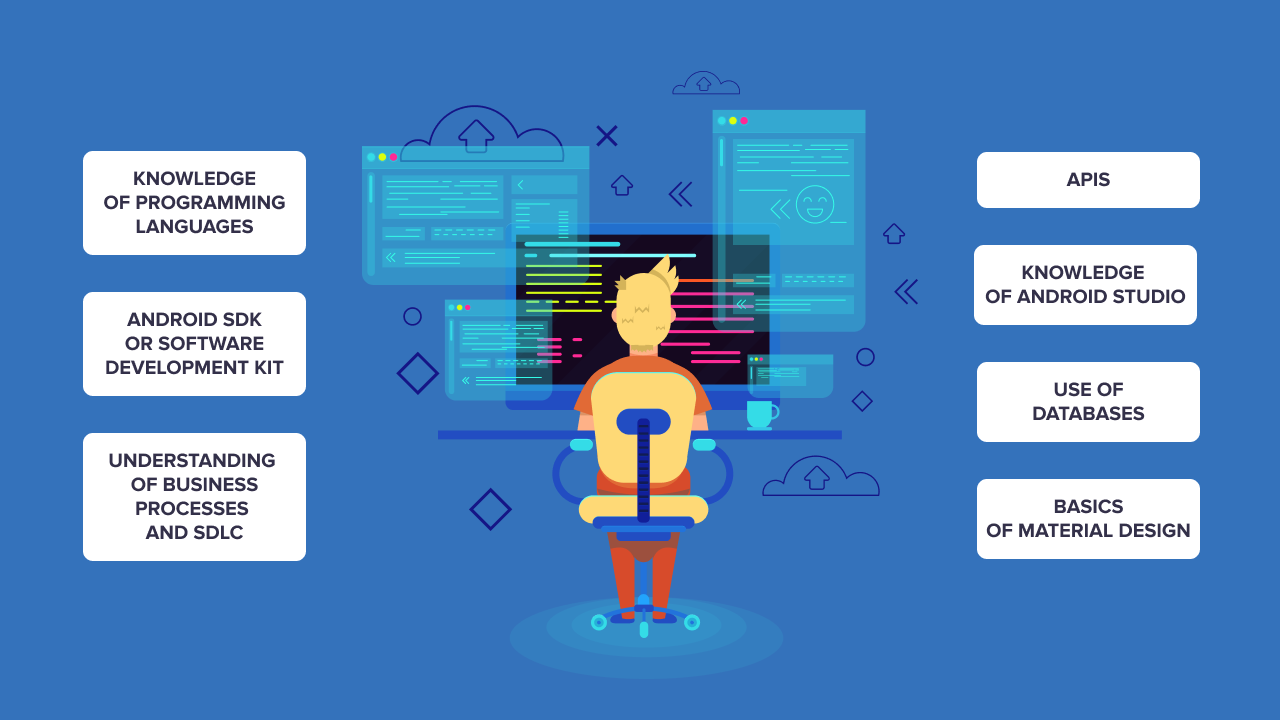Android has always been at the top of the app development market. In 2024, the Android market OS share reached 71.65%, according to recent research by Statista. In other words, having an Android app will help you reach more users.
The total global mobile app revenue reached $536bn in 2024, and it’s predicted to generate up to $781bn by 2029. That sounds impressive, doesn’t it? But not every app can become a success and generate revenue. In fact, only 1 from 10K mobile apps survive because there are too many apps on the market, apps are expensive, etc.
Hiring top Android developers will help you create a successful app that will stand out from the crowd and generate a pretty penny. Here’s our guide on how to hire an Android developer for your app development project.
Developing mobile applications requires particular skills, experience, and knowledge. App developers should understand the business needs, have technical skills, and know-how to develop an app that generates money by solving specific business needs.

With DOIT Software staff augmentation, you can add more developers to your existing in-house team or hire a full development team (with a PM). We’re never short of Android developers, designers, QA engineers, and PMs. In case your project needs more developers than we have, we’ll quickly find and hire additional developers thanks to our much shorter local recruitment cycle.
Check out our article “How to hire an iOS developer?“
Now, let’s take a look at where you can hire Android developers based on the type of engagement choosed.
To hire Android developers in-house, you can start by browsing LinkedIn, Indeed, or other local job sites. Here, you can post job openings and find candidates. But the process may take time, as your HR team will likely need to sift through many candidates to find the right fit. You will need to review resumes, schedule interviews, and, in some cases, test tech skills with internal resources.
Freelancer platforms like Upwork and Fiverr allow you to hire developers on a project or hourly basis. While you may find some good talent, these platforms usually have no to minimal screening. Thus, you might need to invest extra time in vetting candidates yourself. Here, you can hire Android developers with varying levels of experience, often junior to middle.
The last but not least option to find Android developers is to check IT staff augmentation providers. You should vet these companies by track record, positive references, and a list of satisfied clients. Take the time to visit their websites and explore their offerings and case studies. You should inquire about how they test and select Android developers.
DOIT Software has over 10 years of experience matching mobile app programmers with businesses. With our staff augmentation team, you can expect to find Android developers with a fast turnaround time to meet your deadlines. From planning to deployment, DOIT will manage all administrative tasks for new hires, so you can focus on your project.
In fact, the list goes on and on because every project and team has its own unique challenges. But if you focus on the key points we’ve discussed, you’ll be able to build a more efficient hiring process.
So, you’ve learned how to hire Android developers to build your first Android app from scratch! Now, you know the skills, hiring processes, and best practices to focus on.
At DOIT Software, we’re combining the latest technologies and staffing ideas to find top-tier experts. Do you have additional questions about Android developers? Contact us, and we’ll do whatever it takes to help you hire experts to build an app solution for your business.










